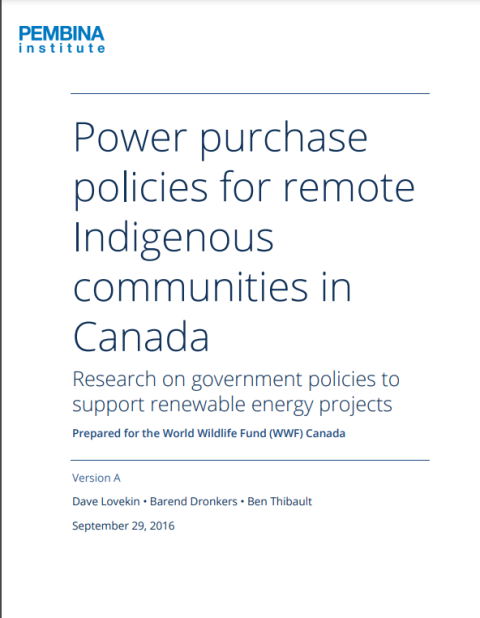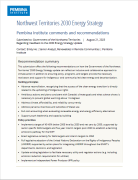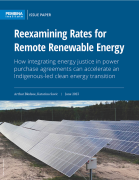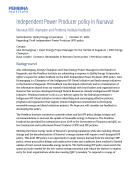Nearly all remote Indigenous (First Nations, Métis and Inuit) communities in Canada rely on diesel power plants and small, local microgrids for electricity. Most of these communities are served by publicly owned utilities, as mandated under provincial or territorial legislation. While these laws ensure these communities have safe and reliable power, they also establish status quo costs, subsidies and investments for diesel power plants. Reliance on these diesel-powered plants comes with harmful economic, social and environmental impacts.
There is an opportunity to successfully support Canada’s remote Indigenous communities in developing their own clean power projects to help create local economic development opportunities while providing electricity. This research report, which was funded by the World Wildlife Fund (WWF) Canada, looks at the existing and potential policies in the region for clean power purchase with a focus on price-based mechanisms.
This report identifies proven and effective policies for Indigenous communities to purchase clean power, the barriers to creating them, and the dominant motivations behind their conception. This research can also guide provincial and territorial governments and their utilities to continue to develop and introduce more effective clean power purchase policies. It also offers suggestions about how the federal government can play a supporting role.







